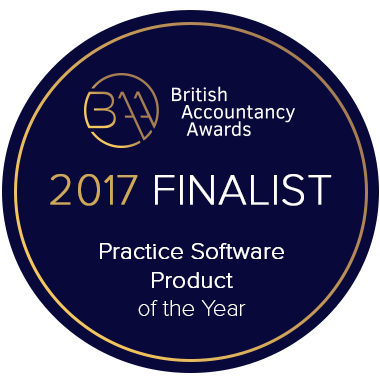
Are the most tech-savvy accounting firms British or American?
As the world we live and work in becomes more digitalised, the ways in which accountants and their clients connect, collaborate, communicate and collect information are being reshaped.
New technologies are disrupting relationships in a global phenomenon that is transforming how businesses are run and the way they interact with their customers. Fuelled by the emergence of social, mobile and cloud computing technologies, new customer-centric business and economic models are changing the way we do even the most basic of things. We only have to look at the Uber effect to see how quickly it has changed the way we call cabs.
On both sides of the Atlantic, there is a general consensus that over the next three years Artificial Intelligence (AI), advances in cloud computing, smarter smartphones and tablets and the development of mobile apps for business process innovation will profoundly impact the accounting profession.
Smarter smartphones and tablets
By exploiting some of the most accessible and powerful emerging technologies, both British and American accountants are beginning to see their potential to satisfy their clients’ needs. Mobile technology is a case in point: the US clearly leads the UK in terms of smartphone ownership with 77% penetration compared with 62.2% and the installed base of smartphones and tablets is expected to more than double from 2.6bn in 2015 to 6.1bn in 2020.
These devices are set to become even smarter but it’s not the hardware that matters, it’s all about apps and UK accountants are leading the app-based drive to change the face of client management.
Apps are the game-changer
The UK is a pioneer in the development of apps for accountants, and developers are putting mobile first rather than moving a desktop and cloud software product onto the mobile platform. Through the use of mobile technology to reinforce trusted adviser status it is possible to make everything connected to clients’ accounts, finance and tax, available through a single button.
It isn’t about IT per se; it’s about evolving and providing up-to-date modern services their clients want and expect and there is huge value and potential to be gained from mobile technology and apps. They cannot be ignored as consumers spent an incredible 900bn hours on Apps in 2016, and app store downloads are forecast to reach 284.3bn in 2020. A mobile presence modernises communication and differentiates the firm.
AI
According to Gartner, intelligent apps are a top 10 strategic technology trend for 2017 and technologies like virtual personal assistants have the potential to transform the workplace by making everyday tasks easier and users more effective.
AI is one of the top nine industries in which the UK leads the world and as we are seeing in the UK, it is fast gaining traction and is already a big talking point for the profession. I prefer Augmented Intelligence as it requires collaboration with humans and augments rather than replaces what humans can do. Whilst some may see AI as a threat, I believe it will add value and it’s not a gimmick. In practical terms it could work like this: if I have a mileage tracker app, then the app will know the date and time and have access to my diary so when I start to drive, it could ask me “are you driving to client X and would you like me to start recording your mileage”.
Machine learning and chatbots will make e-assistants (or mobile i-assistants) a reality and their role will become invaluable answering routine questions anytime of the day or night. There is the potential for AI to solve staffing issues and at the same time, become the cheapest member of the team.
Cloud computing
It is a misnomer to think that the US is more advanced in cloud technology adoption than the UK. While globally there is a massive push for the small business market to transition from their desktop accounting software to cloud based accounting applications, it is New Zealand and Australia that are leading the way, followed by the UK and with the US trailing behind with just 5% of small business having chosen the cloud option.
This raises the question of why American accountants are slower to invest in the cloud? At a recent event hosted by CPA in New York, Geni Whitehouse, a notable thought leader whose aim is to make accountancy and technology interesting, believes this is because the benefits of moving to the cloud have not been clearly articulated or proven. Many accountants tested cloud solutions in the early days and were disappointed by the applications because they were not fully developed and they were slow and missing features. Once burned, it seems that it takes a long time for them to have enough trust to try something again.
Rehmann is one of the largest accounting firms in the US and director of consulting James Carpp believes the US is now past the cloud tipping point and momentum is moving away from the personal computer to mobile devices, as well as from in-house solutions to SaaS solutions. This is supported by a recent polling of CPAs in small to mid-size businesses. 25% said they are on their way to full cloud adoption, almost 50% are working on it, and only 10% have no plans at this time.
92% of CPAs say they are not ‘future ready’
It seems that there is a fundamental difference between British accountants and American accountants in that CPAs need to see concrete evidence, proof, a user case and ROI before they start paying attention to new solutions. UK vendors will be relieved to hear that American accountants don’t mind where the product comes from and, in fact, they positively prefer foreign vendors as they feel they demonstrate a certain “panache”.
During its long history, the accountancy profession has repeatedly demonstrated its capacity to adopt and adapt to changes in business practices, statutory regulations and technology. The flexibility and technical proficiency this demands is part of a professional DNA of both American and British accountants. However, in the digital age, the speed of change and its fundamental nature can make keeping pace difficult, even for the most well-resourced and tech-savvy firm.
In the UK, firms are developing new digital capabilities, such as “anytime, anywhere, any device access” and America is now following in response to trends in business and in government, such as ongoing digital tax initiatives.
With the right support, firms on both sides of the Atlantic are harnessing new technology to meet the changing needs of clients and regulators, whilst simultaneously building, developing and promoting their firm and its services to clients, business partners and prospects. Technology is not the enemy and all firms need to embrace it to keep pace with their clients and the competition.
Categories: Android, Apps, Blog, iPhone














